Iran Accuses Israel Of Attack On Gas Pipelines
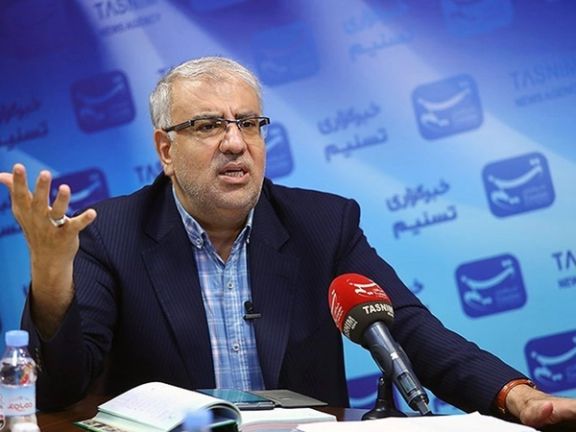
Iran's Oil Minister Javad Owji has blamed Israel for last week's attack on Iranian gas pipelines amid an ongoing shadow war between the two nations.

Iran's Oil Minister Javad Owji has blamed Israel for last week's attack on Iranian gas pipelines amid an ongoing shadow war between the two nations.
The attack, initially labeled by Owji as a "terrorist act of sabotage," targeted Iran's primary south-north gas pipeline network and resulted in two explosions on February 14.
Owji disclosed, "The enemy intended to disrupt households' gas supplies... but within two hours our colleagues worked to counter the Israeli plot which only damaged several pipes."
Israel's track record of targeting Iran's military and nuclear installations, including cyberattacks on the oil ministry's servers, has long been highlighted. However, the attack on a segment of Iran's energy infrastructure, crucial to industries and factories, is perceived as an escalation in the clandestine conflict, according to officials and analysts. The office of Israel’s Prime Minister, Benjamin Netanyahu, has not commented.
Western officials say the gas pipeline attacks attributed to Israel necessitated a profound understanding of Iran’s infrastructure and meticulous coordination, especially since two pipelines were struck across multiple locations simultaneously.
Despite Iran's denial of direct involvement in attacks against Israel and the United States, the nation's support for and arming of proxy militias actively engaged in conflicts involving both countries, such as the Houthis in Yemen, Hezbollah in Lebanon, and militants in Iraq and Syria, has been underscored. Iran has also been implicated in supporting Hamas and other Palestinian factions.
In December, a hacking group, alleged by Iran to be affiliated with Israel, claimed accountability for a cyber assault that crippled almost 70% of Iran's fuel stations.
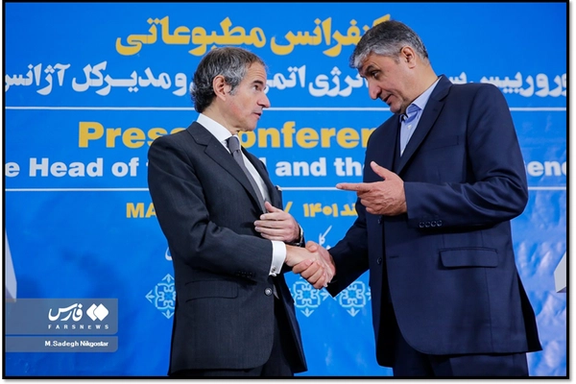
Iran's nuclear chief on Wednesday dismissed a suggestion that the head of the UN nuclear watchdog Rafael Grossi would visit next month but instead invited Grossi to a conference in Tehran in May.
Grossi said this week Iran was continuing to enrich uranium well beyond the needs for commercial nuclear use and said he planned to visit Tehran next month to tackle "drifting apart" relations between the International Atomic Energy Agency (IAEA) and the Islamic Republic.
But Mohammad Eslami said a visit next month was unlikely due to a "busy schedule" without giving further clarification. "Iran's interactions with the IAEA continue as normal and discussions are held to resolve ambiguities and develop cooperation," he said at a weekly press conference in Tehran.
Eslami said Grossi had been invited to attend Iran's first international nuclear energy conference in May.
Speaking to Reuters on Monday, Grossi said while the pace of uranium enrichment had slowed slightly since the end of last year, Iran was still enriching at an elevated rate of around 7 kg of uranium per month to 60-percent purity.
Enrichment to 60 percent brings uranium close to weapons grade and is not necessary for commercial use in nuclear power production. Iran denies seeking nuclear weapons, but no other state has enriched to that level without producing them.
Under the defunct 2015 JCPOA agreement with world powers, Iran can enrich uranium only to 3.67 percent. After then-President Donald Trump pulled the US out of that deal in 2018 and re-imposed sanctions, Iran breached and moved well beyond the deal's nuclear restrictions.
The UN nuclear watchdog said the 2015 nuclear deal "is all but disintegrated."
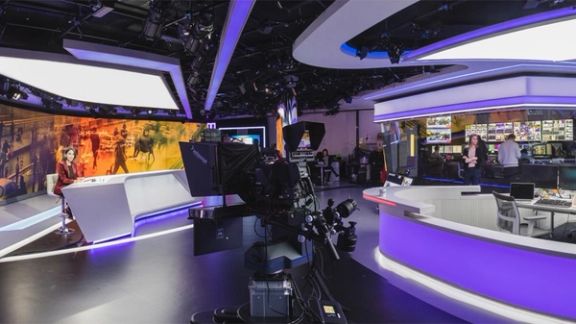
Top secret intelligence documentation obtained by a hacktivist group reveals Tehran targeted dozens of Iran International TV staff with financial bans and threats to their families amid protests in 2019.
The network was aware of the intimidation tactics at the time, but the documents, obtained by Edalat-e Ali (Ali's Justice) hackers, offer indisputable proof that Iran’s Intelligence Ministry and judicial officials were coordinating the harassment efforts.
In November 2019, a sudden hike in gasoline prices led to nationwide street protests that were met with overwhelming brute force by the Islamic Republic’s security and paramilitary forces. In a matter of days, around 1,500 people were killed by these forces, Reuters reported at the time.
Amid official denials, misrepresenting protesters as organized mobs attacking public property, Iran International deployed its full resources to report about the real situation.
The government shut down the internet and Iran International and other foreign-based Persian broadcasters were the only window for the people to know what was unfolding in the country.
In the leaked Intelligence Ministry letter dated November 30, 2019, a top counter-intelligence officer wrote to Ali Alghasi, Tehran Prosecutor General, revealing the tactics employed by the Islamic Republic as dissenting voices became ever harder to quash.
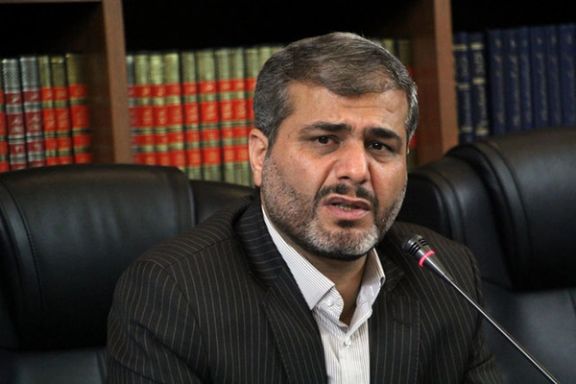
The document, written as protests were quashed, revealed that 15 family members of Iran International employees across the country were summoned by the Intelligence Ministry.
“Some 71 behind the scenes key players were barred from being able to carry out financial transactions,” according to the letter marked as top secret.
While Iran’s pressure on Iran International and other Persian broadcasters has been publicized before, the document offered an insight into the motivations behind such actions.
“These measures had a psychological impact on the employees resulting in mental disorder and confusion and their sense of security,” the counter-intelligence officer added.
Revealing the psychological warfare employed by the regime, the unnamed author of the letter expressed that the intention of the Intelligence Ministry’s actions was to deliberately "disrupt the mental peace" of those daring to voice opposition to the regime.
However, in spite of the attempts to silence the channel, he noted the regime's failure. “It must be mentioned here that following these measures, the network is almost back to its original format and part of their schedule is dedicated to the legal and intelligence agencies actions involving the network’s employees and their families.”
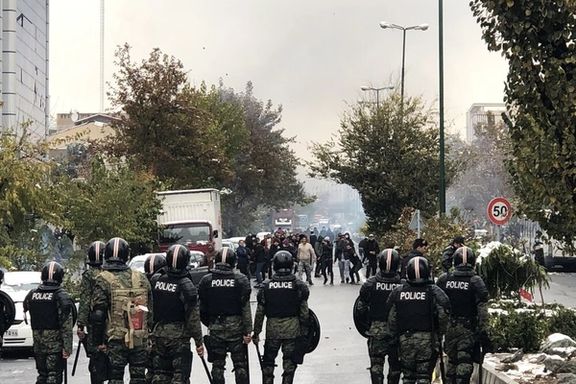
During the 2019 uprising, the government imposed a week-long internet ban in an attempt to further suppress dissent. Describing the work of Iran International to the prosecutor, the letter said: “This network broadcasts interviews with various people opposed to the establishment, e.g. Monarchists, Mojahedin and …… to call on people to rebellion and destruction of public property, destruction and burning of the state property.”
He accused the station of disseminating “false news to encourage the villains and vandals, inviting people to gather in streets and public places, mobilizing the Iranians living abroad to support the rioters” and "subverting the position of the supreme leader of the country by highlighting his support for the [petrol price increase] plan”.
Iran International has been subjected to a state-backed campaign for years, resulting in a significant escalation in threats against its staff in terms of frequency and severity.
In February 2023, the channel had to temporarily relocate its offices in London to Washington after the UK’s security forces determined it could no longer keep the staff safe following assassination attempts by Iran’s IRGC. However, the network reopened in September from a new location amid tightened security measures.
It was also revealed last year that key commanders from Unit 840 of the IRGC’s Qods Force had offered a human trafficker $200,000 in October 2022 to assassinate Fardad Farahzad, a presenter at Iran International, and former presenter Sima Sabet. In February 2023, a Chechen-born Austrian national, Magomed Dovtaev, was arrested close to the network’s headquarters in London on suspicion of conducting hostile reconnaissance. He was subsequently convicted last December for providing information to be used in a terror plot.

The letter reveals that even ordinary citizens who tried to contact Iran International and share their experiences and visual materials faced pressure from the government.
"In respect of the need to counter the actions of the foreigners and the broadcasting satellite networks, those making contacts with them within Iran were identified and phone numbers of the broadcasting companies were blocked,” the counter-intelligence officer wrote.
The leak also revealed the harassment not only of journalists, but also of their parents and family members, threatening them that should their children continue working with “opposition” media, “deemed to disturb the peace and security of the country … they will be dealt with according to the law”.
A UK representative of Reporters Without Borders condemned the harassment of Iran International Journalists. “Iran’s targeting of journalists’ families shows the shocking lengths to which it will go to silence a free press. It is intended not only to disrupt family life, but also to heap yet more psychological pressure on journalists in exile who are also contending with direct threats. RSF stands in solidarity with all Iranian journalists who continue to report in the face of such harassment and calls on the Iranian authorities to immediately stop their relentless efforts to intimidate them.”
The 2023 annual report from Freedom House, noted that “Iranian authorities have intimidated journalists working for Persian-language media outside the country, in part by summoning and threatening their families in Iran”, as its policy of threats continues in the face of mass discontent.
It stated that amid the nationwide protests that began in September 2022, in the wake of Mahsa Amini’s death in morality-police custody, authorities arrested dozens of journalists, and at least 62 were jailed, according to the Committee to Protect Journalists.
“Authorities also attempted to suppress coverage of the protest movement by imposing severe restrictions on internet services, including curbs on access to the social media platforms Instagram and WhatsApp,” it stated, as internet shutdowns continue today.
Last month, the US and UK announced a sanctions package against a network involved in assassination plots targeting dissidents, including Iran International journalists, on British soil. At least 15 plots have been foiled in the UK since 2022.
UK Home Secretary James Cleverly said: “The Iranian regime has tried to undermine our democracy through repression … We cannot allow foreign regimes to collaborate with criminals to threaten us. Sanctioning these criminal networks working for the Iranian regime will remind them that we will fight back. My priority is to protect our people and to defend our way of life, and the UK will not tolerate threats from the Iranian regime.”
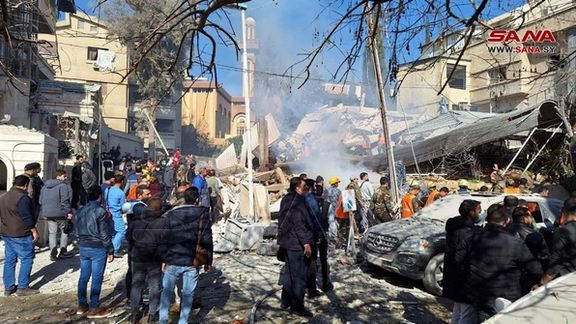
Several Israeli missiles hit a residential building in the Kafr Sousa district in Syria's capital Damascus on Wednesday, Syrian state media reported, after a recent string of similar strikes.
The neighborhood hosts residential buildings, schools and Iranian cultural centers, and lies near a large, heavily-guarded complex used by security agencies. The district was targeted in an Israeli attack in February 2023 that killed Iranian military experts.
The Syrian Observatory, a war monitoring group based in Britain, reported that a building near an Iranian school in Damascus was targeted. The area is frequented by senior officials of Iran’s Revolutionary Guard.
Rami Abdulrahman, the head of the Observatory, said that the target of the attack was to eliminate Hezbollah and IRGC personnel. So far, three individuals have been reportedly killed.
There have been several strikes since January targeting high-value Iranian targets in Syria and particularly in Damascus. Targets near a military airport west of the Syrian capital Damascus were attacked on February 9 by unidentified missiles on drones. An Iranian military adviser was killed in another attack in Damascus on February 2.
Syrian state news agency SANA said an "Israeli attack" had targeted a residential building but made no mention of casualties. It published an image of the charred side of a multi-story building.
Witnesses heard several back-to-back explosions. The blasts scared children at a nearby school and ambulances rushed to the area, the witnesses told Reuters.
There was no immediate comment from the Israeli military. Since 2017, Israel is believed to have launched hundreds of air strikes against Iran-affiliated targets in Syria.
Iran has been a major backer of President Bashar al-Assad during Syria's nearly 12-year conflict. Its support for Damascus and the Lebanese group Hezbollah has drawn regular Israeli air strikes meant to curb Tehran's extraterritorial military power.

With only ten days remaining before the March 1 elections in Iran, politicians are still weighing the advantages and disadvantages of participating in the vote amidst broad government electoral manipulations.
“Reformists cannot participate in meaningless, non-competitive, unfair, and ineffective elections in governing the country.” This is strategy number 4 of the Iranian Reformist Front’s statement on the 2024 elections. Contrary to this strategy and the majority vote of of Reformist organizations to boycott the elections, 110 Reformist activists have urged people to participate. This request has sparked intense debate among the Reformist activists and strategists.
Now it is evident that a faction of the Reformist camp cannot overlook the sacrifices of the “Women, Life, Freedom” Movement, which include 550 deaths, tens of thousands of arrests, more than 10 political executions, and the blinding and maiming of hundreds of individuals, and encourage people to return to the polls. Another faction still advocates for voting for the lesser evil, forming a minority in the Majles (parliament) to promote economic development.
However, they fail to explain how development and progress can be achieved while maintaining intact the nuclear and expansionist programs, which have brought on crippling US sanctions.
Pro-boycott arguments
What are the main arguments of both sides of this debate? Pro-boycott Reformists present arguments that diverge significantly from the reformists’ trajectory in the past two decades. From their perspective, the main issues with the statement of 110 activists include the futility of participation, the lack of significance of the 2024 elections, legitimization of disqualifications through participation, and the absence of any clear boundaries set by these 110 individuals. This same argument could have been raised during the 2000 presidential elections that led to Khatami's second term, yet the Reformists participated in all elections from 2000 to 2020.
Pro-boycott activists believe that both the Majles and the Expert Assembly are irrelevant in governing the country. The Majles lacks real checks and balances and monitoring power, with tens of councils in the country possessing legislative authority. The Expert Council has never fulfilled its responsibility to hold Khamenei accountable, and the next leader will be chosen by the security and military establishment.
Critiquing the statement of pro-participation Reformists, Mohsen Armin the vice president of the Reform Front said: Society is so dissenting and angry that any participation in the elections will not yield any results beneficial to the public." He considered the pro-participation group to be a minority among the Reformists and accused them of employing "fantasy-based theories" to highlight their fundamental differences with the majority, resulting only in division.
Blaming Ali Khamenei for Iran's "defective political system," imprisoned political activist Mostafa Tajzadeh, has declared in a letter that he will not vote in the upcoming elections. He cites several strategic mistakes by the leader of the Islamic Republic, including "rendering elections meaningless and rendering elected institutions ineffective, especially the parliament."
Pro-participation arguments
The pro-participation camp argues for consensus-building, gradualism, problem-solving coalitions, and attention to the institutional and structural contexts of the goals. However, the Reformists did have strong presence in the parliament prior to 2020 and failed to achieve any of these goals. The numerous instances of Reformists' participation through allegiance to the regime have not sufficed to prove their loyalty and good intentions. Their candidates were massively banned from the 2020 parliamentary and the 2021 presidential elections.
"Since 2020, according to all indicators, we have been moving in the wrong direction, proponents of boycotting the 2020 and 2021 elections…should evaluate the consequences of this policy," says one of the signatories of this statement. According to this interpretation, economic and social decline is not attributable to the regime's corruption, incompetence, waste, expansionism, authoritarianism, and totalitarianism but rather to the decreased participation of people over the past five years. It is the people's fault for not voting sufficiently.
There is also a foreign element in the pro-participation arguments. Some argue that alleged enemies such as Donald Trump or Benjamin Netanyahu will take advantage of a low turnout in the elections as the legitimacy of the regime comes under question. This implies that, out of fear of Trump and Netanyahu, Iranians should embrace their brutal and corrupt leaders and pledge allegiance to Khamenei, despite the Reformists having a very slim chance of winning any parliamentary seats.
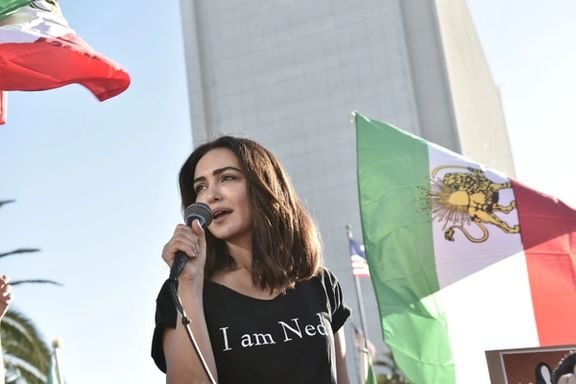
Iranian political activist Nazanin Boniadi has penned a letter to US officials, urging them to walk out during the address by Iran's Foreign Minister at the UN Human Rights Council (UNHRC) on February 26.
"I implore all democratic member states to unite in protesting the IRI regime’s egregious abuses against Iranians & brutalities abroad via proxies," wrote Boniadi on her social media account.
The letter directly addressed to Secretary of State Anthony Blinken and US Ambassador to the UN Linda Thomas-Greenfield, highlighting the severity of the situation in Iran. "He is the representative of a brutal and cruel regime that beats, blinds, rapes, poisons, unlawfully detains, forcibly disappears, tortures and murders its own people," the letter stated.
Boniadi emphasized the need for a unified stand against the Iranian regime's human rights violations. "You must surely recognize the inappropriateness of a representative of this brutal and criminal regime being allowed to address the UNHRC," she added.
The call for action comes after continuing repression in Iran and an increase in executions. In 2022 and 2023 the government killed around 550 citizens during protests sparked by the death of Mahsa Amini.
"More than 500 demonstrators were killed by security forces in the protests following Mahsa's death, after they were given free rein by the regime’s top officials in an attempt to quell the uprising," the letter highlighted.